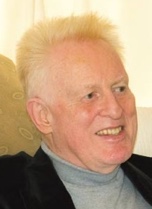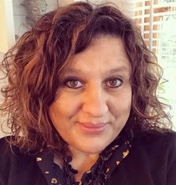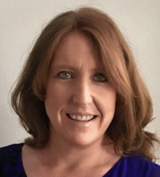Full course content
What do we offer
This training will enable the students to critically examine and implement different approaches and models of addiction counselling in their own professional practice to maximise the support their clients need to find their own answers to their problems. We do include evidence-based practices.
Our teaching style is largely experiential, interspersed with didactic teaching, group process, skills training and live supervision. The overriding ethos is humanistic-integrative and relational. We will introduce a process of assessing addiction and treatment/therapy plans. We will consider 1:1 therapy, groups therapy, residential treatments programmes, and the incorporation of self-help groups.
The training may be particularly attractive for those who want to work with diverse, multicultural, marginalised groups of clients struggling with addiction and/or social exclusion. We enable you to increase awareness of the wider systems and context within which your clients and their family operate. Differences and similarities are equally valued on the course.
.
Students are also personally challenged to become more resilient and resourced, improving their capacity to deal with the traumatic experiences their clients present.
Teaching and supervisory methods emphasize the multi-layered, multi-faceted processes of this impactful work, including the intentional use of self.
The programme is designed to support those who wish to become professionally accredited in the field. The course content meets the criteria of Addiction Professionals (AP). There is a requirement of 150 hours of client work and the completion of 3 written assignments, totalling 12,500 words.
Course Description
Course philosophy: What are addictions
Addiction is an umbrella term for a range of extraordinarily complex issues and often seen as manifestation of a deeper emptiness of being. It stretches beyond personal difficulties and can be diagnosed as an expression of a collective malaise.
Addictive qualities may be functional as well as holding the potential for disaster. We celebrate tenacity, rigour, and determination. When we are striving for excellence, these qualities can appear to lead to amazing accomplishments: the diligent student, the successful businessperson, the great athlete. Some addictions seem to support great success.
We start taking addiction seriously when it rips away at what is most important in life. Addiction interferes with personal development, blocks self-awareness, and deepens a sense of dislocation. Relationships are destroyed and empathy is replaced with disconnection. Shame and guilt create an abyss of loneliness in which a person may disappear. Addiction can take up every aspect of a person’s life.
Objects of addiction can be complex, even interchangeable, leading to an addictive lifestyle. An alcohol addiction can be replaced by an addiction to exercise, or any other way to avoid the fundamental longing underlying the need to silence the inner pain. Addiction simply acts as the escape from whatever it is that seems unbearable.
The course explores the different held “beliefs” about addiction. We will investigate ideas from a single root causation to pluralistic influences.
Some questions underpinning the training:
- Is addiction genetically predetermined in everyone, but circumstances trigger it, or are some personality types more impulsive and therefore prone to compulsive behaviours?
- Can we bring about change? If so, how?
- Is addiction a ‘necessary’ attachment? is addiction a kind of pseudo attachment
- Should we focus on minimising harm and risk, or do we embrace abstinence?
To answer these questions we will explore the biology of addiction, the psychology of addiction, psychopharmacology, co-morbidity, relationships and addiction, trauma and addiction, the social structure of addiction and how the environment and culture influence addiction.
Course participants will also be supported in a critical examination of existing treatment models and how their own practice can accommodate new concepts and knowledge.
At the end of this course students will have acquired
- A critical understanding about the theoretical underpinnings of the principal approaches to psychological treatments for addiction and be able to assess how useful they are in different settings for each specific client and their family
- A firm commitment to professional guidelines and ethical practice in addiction psychotherapy, from start to ending of the treatment
- A critical evaluation of legal issues around addictions
- Education in the following evidence-based mainstream approaches to addiction therapy: Alan Schore’s Affect Regulation Theory and the BioPsychoSoical Model of Addiction Treatment
- Practical and applicable insight in the intertwining of psychopharmacological, psychological, spiritual, economic and social psychological factors in the development of addiction (including commonly encountered mental health problems)
- Information about the recent research and contributions in understanding addiction, especially the neuroscience of addiction and the use of psychedelics
- Integration of intergenerational issues in addiction therapy
- Enhanced awareness about the impact of working with addiction on the therapist
- Knowledge about mental health and addiction treatment services in the UK
- The ability to conduct and accumulate supervised a minimum of least 100 hours
Course content
Modules
The course covers a range of subjects that are structured to develop competent professional practitioners in the field. Subjects are being taught by a range of specialists.
During the course the following subjects will be taught. Modules are structured around the clustering of these themes:
- Alan Schore’s Affect Regulation Theory and the BioPsychoSocial Model of Addictions
- Manifestations of addiction, i.e. substance/behavioural/process addictions
- Concepts of addiction: disease, psychodynamic, moral and lifestyle models
- Aetiology of addiction
- Psychology of addiction
- Biological Psychology of addiction
- Psychiatry and medicine of addiction
- Co-morbidity including bi-polar, psychosis, ADHD, depression and addiction, PTSD, developmental trauma
- Cross/poly addiction
- Chronic pain and addiction
- Neuroscience, reward/gratification pathways and addiction
- Epigenetics causes of addiction
- Intergenerational impact on addictions
- Intersectionality and addiction
- Addictions and cultural differences
- Addictive personality
- Relapse prevention
- Post-Acute-Withdrawal Syndrome (PAWS)
- Kindling Effect (withdrawal symptoms)
Behavioural addictions
- Compulsive sexual behaviour, hypersexuality and paraphilias
- Pornography
- Couples impacted by sexual compulsive behaviour
- Gambling, Gaming and Social media addiction
- Shopping
Relationship addictions
- Co-dependency
- Love addiction
- Disordered eating and the addictive process
Substance addictions
- Alcohol
- Prescription drugs
- Cocaine
- Cannabis
- Opioids
- Chemsex
Treatments
- Evidence-Based Psychosocial Interventions
- Residential treatment group process
- 12 Step Program
- Couples therapy
- CBT and addiction
- Motivational Interviewing, integrative/relational/depth therapy approach
- Compassionate approach
- The use of psychedelics in treatments
Addictions and the UK
- Family and children and addiction
- Professional guidelines
- Legal issues, probation, law/criminality
- Services in the UK
Faculty
The faculty includes a highly experienced team of specialists representing clinical expertise in all of the above.
Prof Fred Toates, Dr Stroma Macfarlane, Robert Hudson, Thomas Brosnan, Georgia Swift, Jaap Westerbos
We will also invite guest speakers during the 2 years.
Dates (TBC)
1 year Diploma – 12 weekends (200 hours) = 1 weekend per month per year.
Sat/Sun 09.00 to 17:00 hours.
Entry requirements
Applications are invited from counsellors, therapists, and psychologists, psychosexual and relationship therapists, and other Mental health professionals. Applicants are expected to have a minimum of 2 years professional experience and be familiar with the principles of self-reflection and supervision.
Upon receipt of your application and 2 references we invite you for a face-face interview. During this interview we will assess your readiness for training, academic potential, professional motivation and personal interests.
Assessment
Attendance
Attendance is Saturdays and Sundays from 9.00 to 17.00 hours. Students must schedule at least 100 hours of clinical work during the latter part of the course, with supervision required at a ratio of 1:6.
As well as attending all modules (or minimal 85%), students are required to schedule peer support meetings, monthly, of 2 hours. Students are also required to work in a self-directed fashion which includes relevant background reading, preparation for essays and case study submissions. Students will also need to attend for individual tutorials at least once or twice each year.
Written work
Year
Essay (3500 words) – Self-reflection
Case Study (5000 words)
Location
West London University Ealing, London
Accreditation
Accreditation with NCIP and working towards accreditation with Addictions Professionals (AP).







